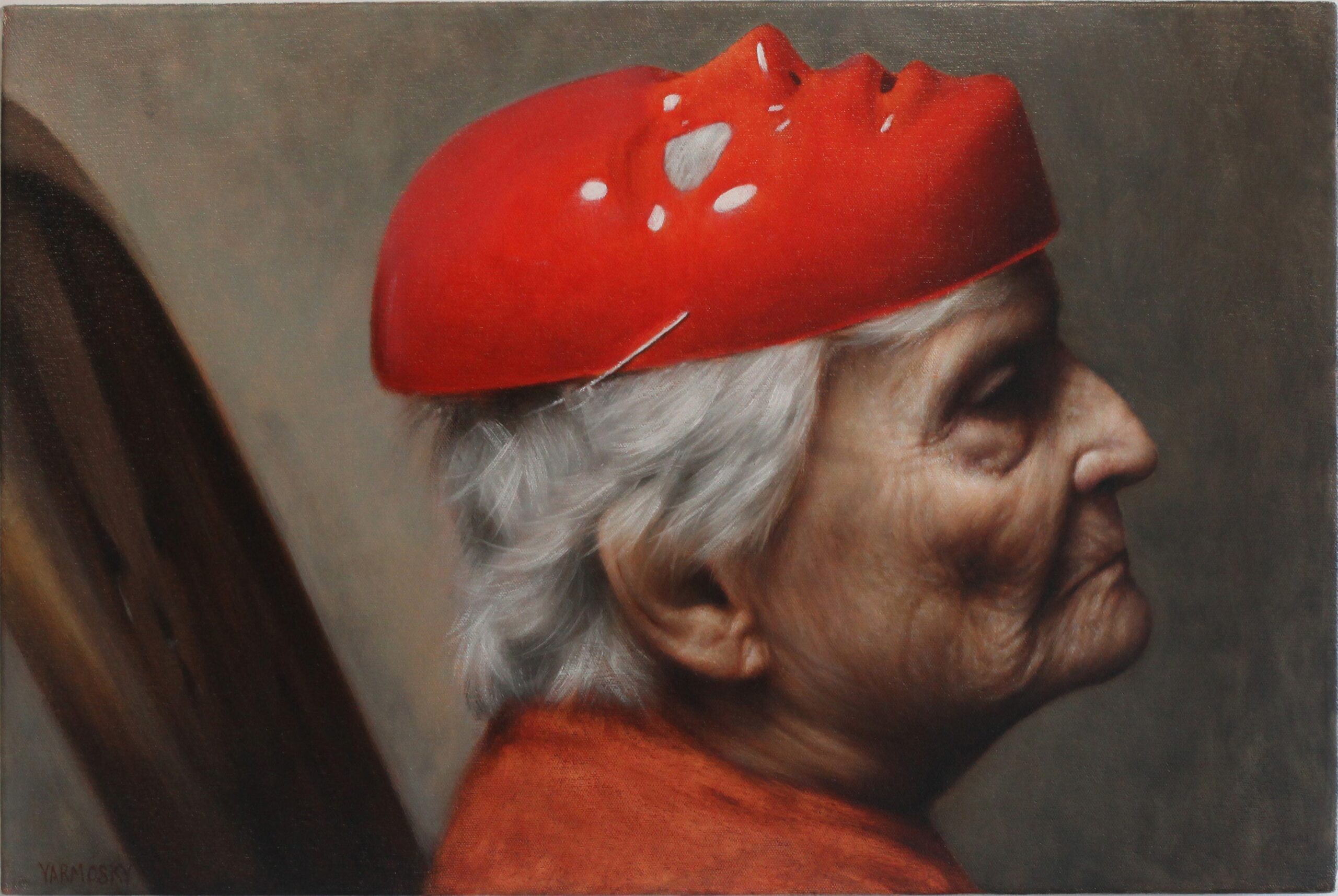Berg’s 20th-century shocker stars baritone Peter Mattei in the title role, with Music Director Yannick Nézet-Séguin on the podium and soprano Elza van den Heever as the long-suffering Marie. Groundbreaking visual artist and director William Kentridge unveils a bold new staging set in an apocalyptic wasteland.
Event Series: The Met Live
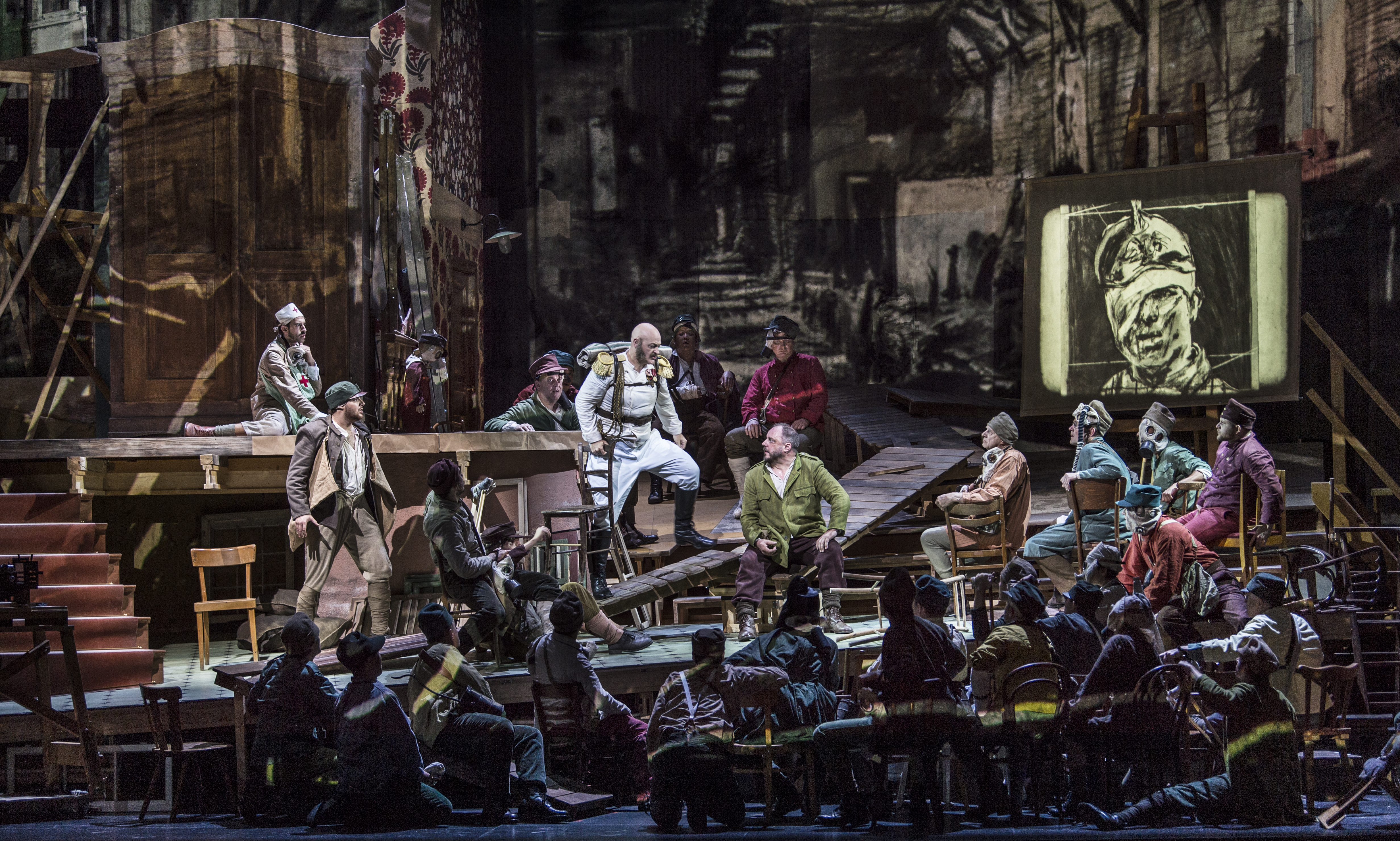
The Met: Live in HD – Berg’s Wozzeck
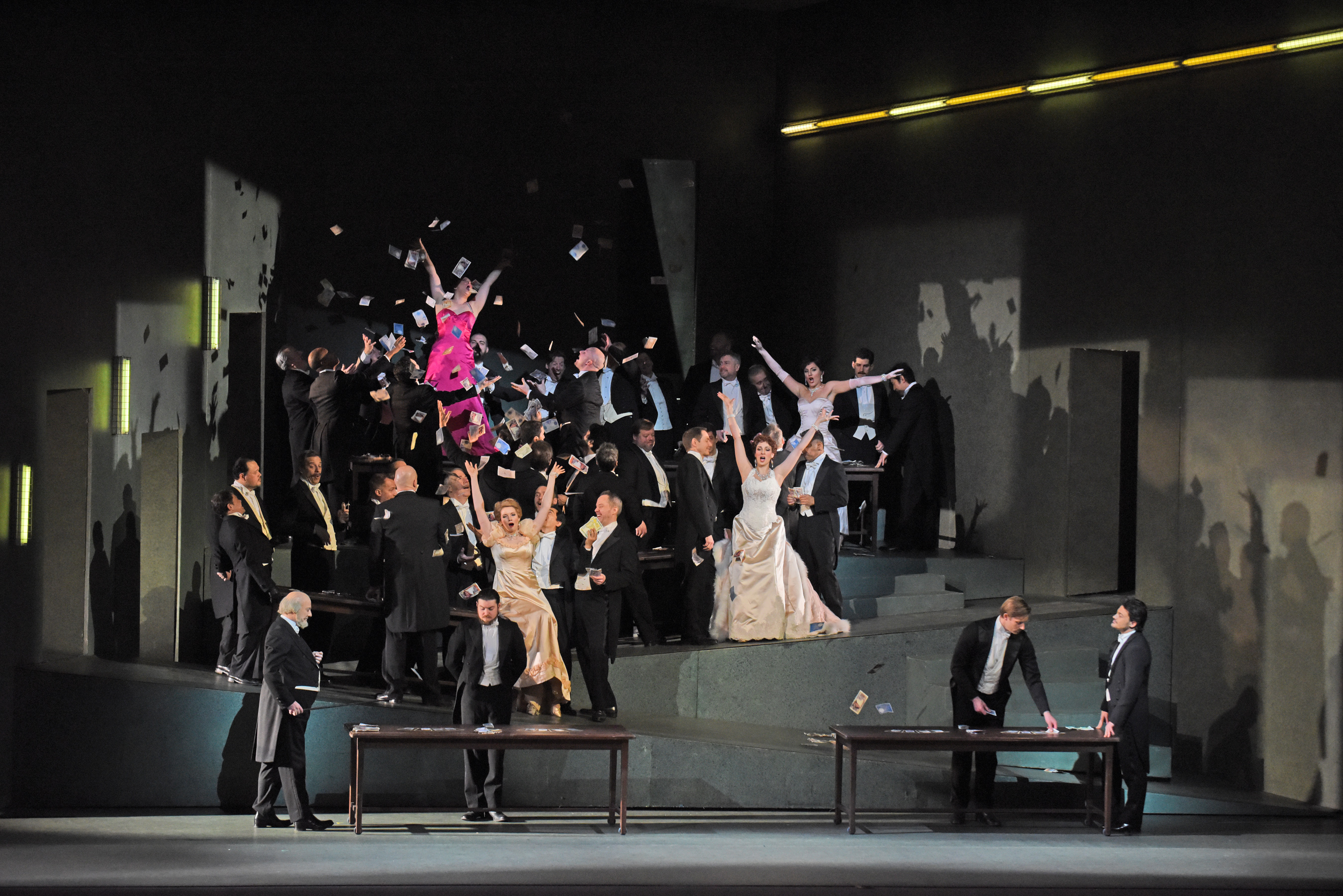
The Met: Live in HD – Massenet’s Manon
Massenet’s tale of passion, excess, and their consequences stars rising soprano Lisette Oropesa in the effervescent title role. Tenor Michael Fabiano is her ardent admirer, Chevalier des Grieux, with Maurizio Benini conducting Laurent Pelly’s enchanting production.
To learn more about Manon, please join us for our pre-screening Operatif with Victoria Bond.
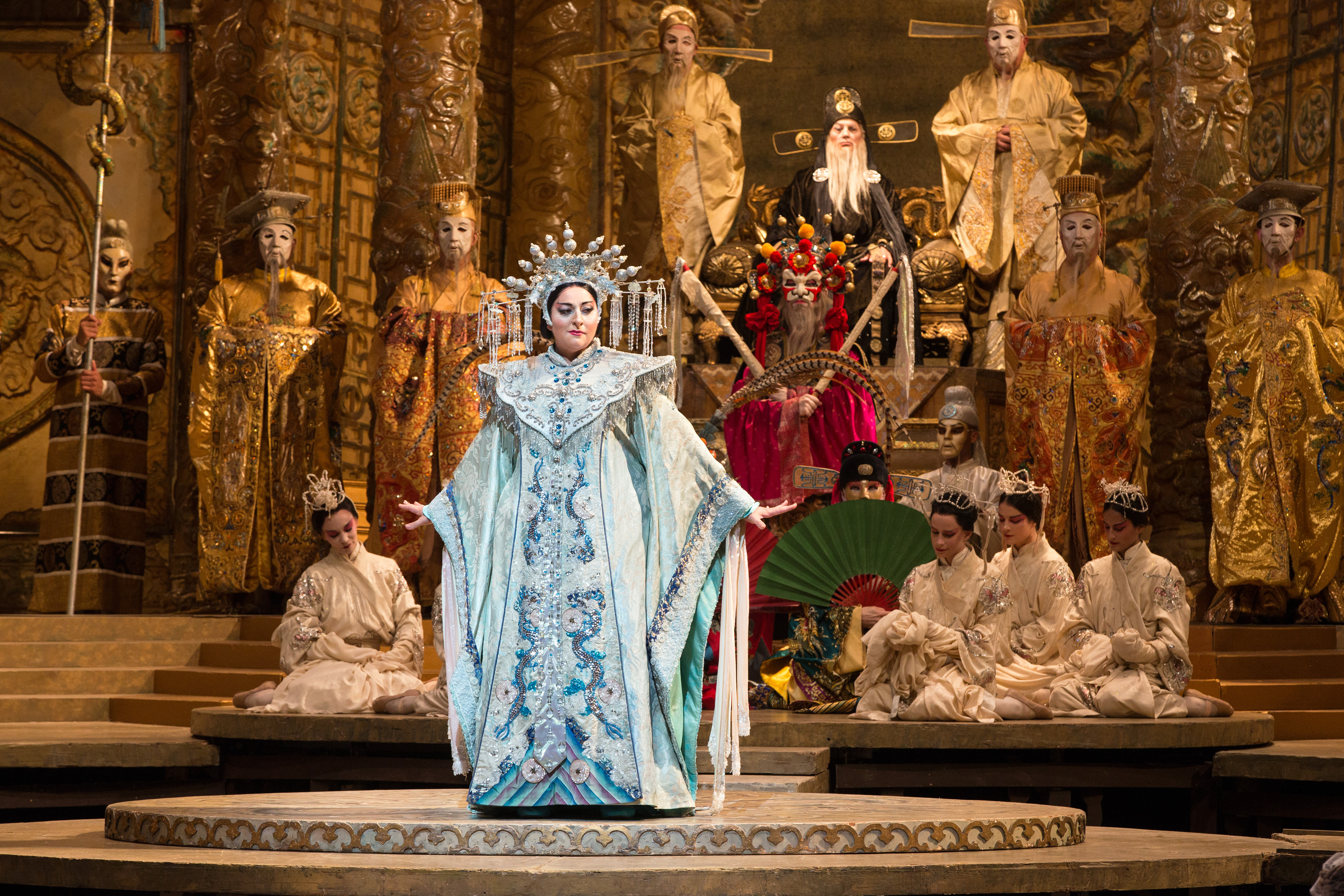
The Met: Live in HD – Puccini’s Turandot (Encore Screening)
Thrilling dramatic soprano Christine Goerke brings her fierce portrayal of the title princess to cinemas on October 12, with Yannick Nézet-Séguin on the podium for Franco Zeffirelli’s dazzling production of Puccini’s final masterpiece. Tenor Yusif Eyvazov is the mysterious prince Calàf, alongside soprano Eleonora Buratto as Liù and bass-baritone James Morris as Timur. This live cinema transmission is part of the Met’s award-winning Live in HD series, bringing opera to more than 2,200 theaters in more than 70 countries worldwide.
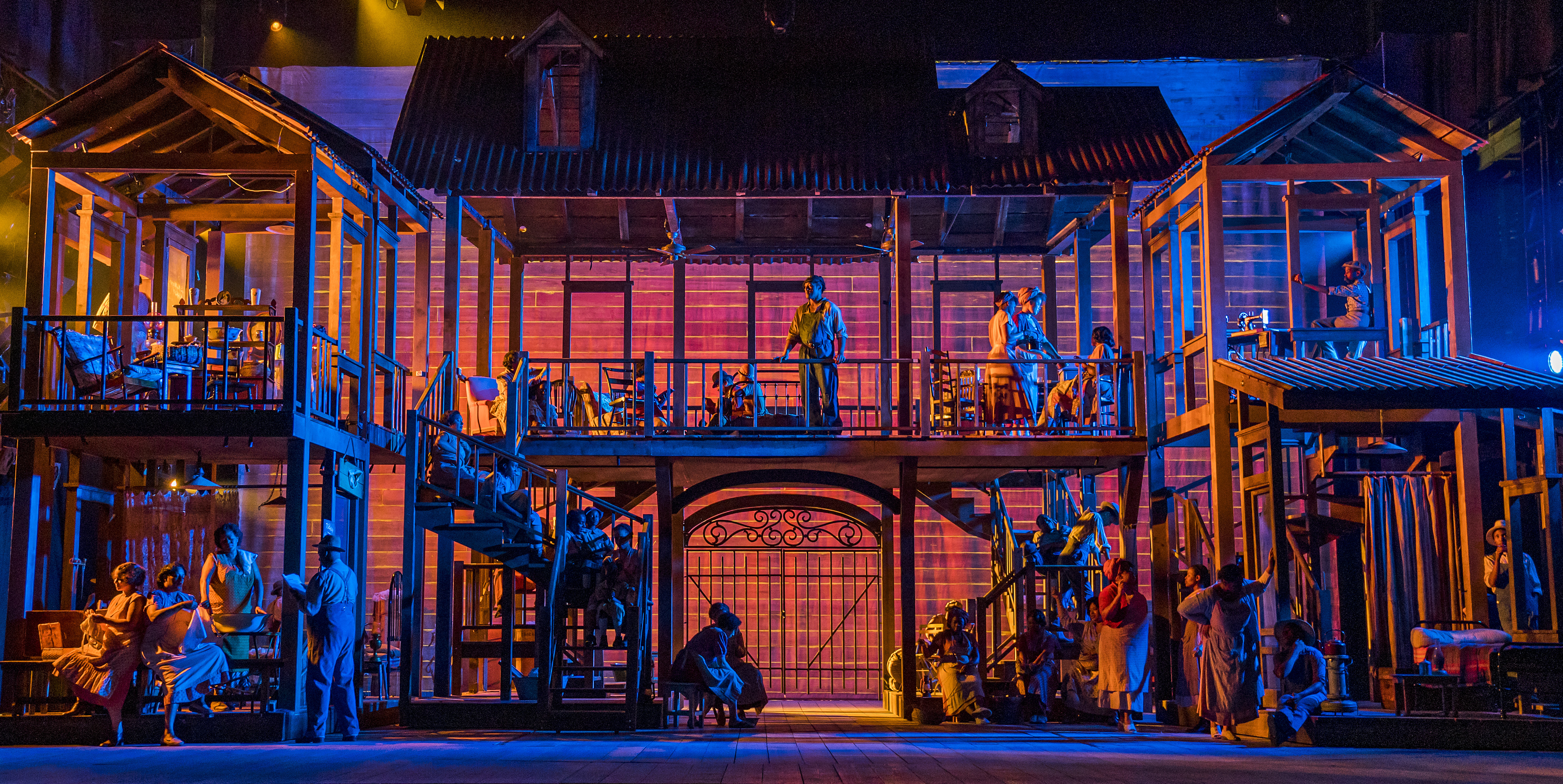
The Met: Live in HD – The Gershwins’ Porgy and Bess
The Gershwins’ modern American masterpiece has its first Met performances in almost three decades, starring bass-baritone Eric Owens and soprano Angel Blue in the title roles. Director James Robinson’s stylish production transports audiences to Catfish Row, a setting vibrant with the music, dancing, emotion, and heartbreak of its inhabitants.

The Met: Live in HD – Handel’s Agrippina (Met Premiere)
As the imperious title empress, mezzo-soprano Joyce DiDonato leads the Met premiere of Handel’s tale of deception and deceit. Harry Bicket conducts Sir David McVicar’s wry new production, which gives this Baroque black comedy a politically charged, modern updating.
Delve even deeper into Handel’s Agrippina? Join us for a pre-opera lecture, Operatif: Handel, The Opera Composer before the broadcast.

Operatif Lecture with Victoria Bond
Pre-opera lecture on Poulenc’s Dialogues des Carmelites.

Operatif Lecture with Victoria Bond
Composer, Conductor, and Opera Scholar
Pre-opera lecture on Cilea’s Adriana Lecouvreur.
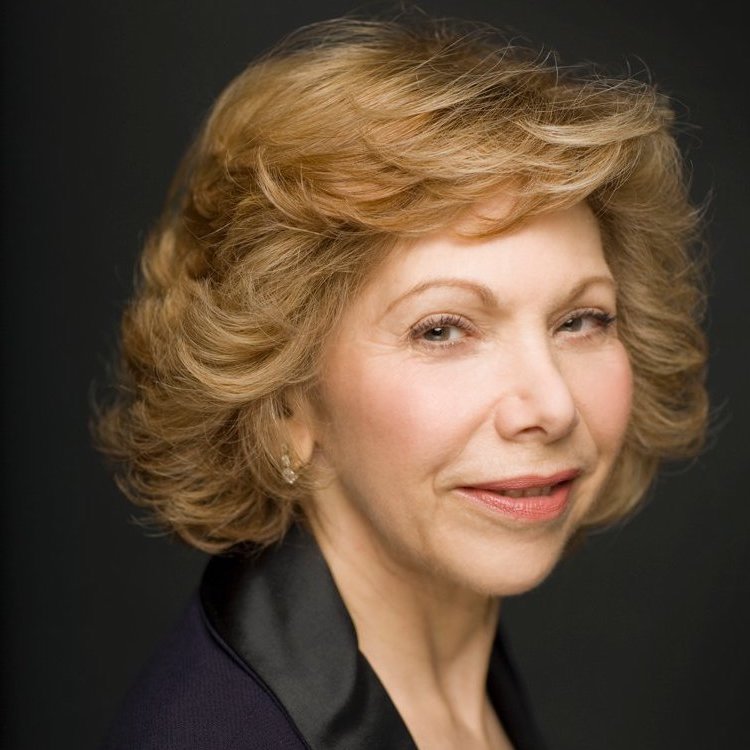
Operatif Lecture: Biography or Myth? With Victoria Bond
Before the Met Live screening of Verdi’s Aida on Saturday, October 13, at 12 pm, opera lecturer extraordinaire Victoria Bond will give a presentation Biography or Myth: Do opera composers modify history to tell a better story? Bond will speak about historically-themed operas, including those by Donizetti and Rossini as well as Aida and Bellini’s Norma. Join us for this Season Opener “Operatif” which includes a light buffet brunch.
Guild Hall opera donors at the $200 level and above enjoy these lectures at no charge. Half-price tickets are available for Met Opera donors of $100. Tickets to the lecture are $30 for all other patrons and may be purchased at the Box Office.
Bond is a powerful force in 21st century concert music, having distinguished herself both as a composer and conductor, being commissioned by major symphonies, chamber orchestras, ballet companies, dance festivals, and opera houses, Ms. Bond is the founder of Cutting Edge Concerts New Music Festival which she produces each spring at Symphony Space in New York. She is also a frequent pre-concert lecturer for the New York Philharmonic.
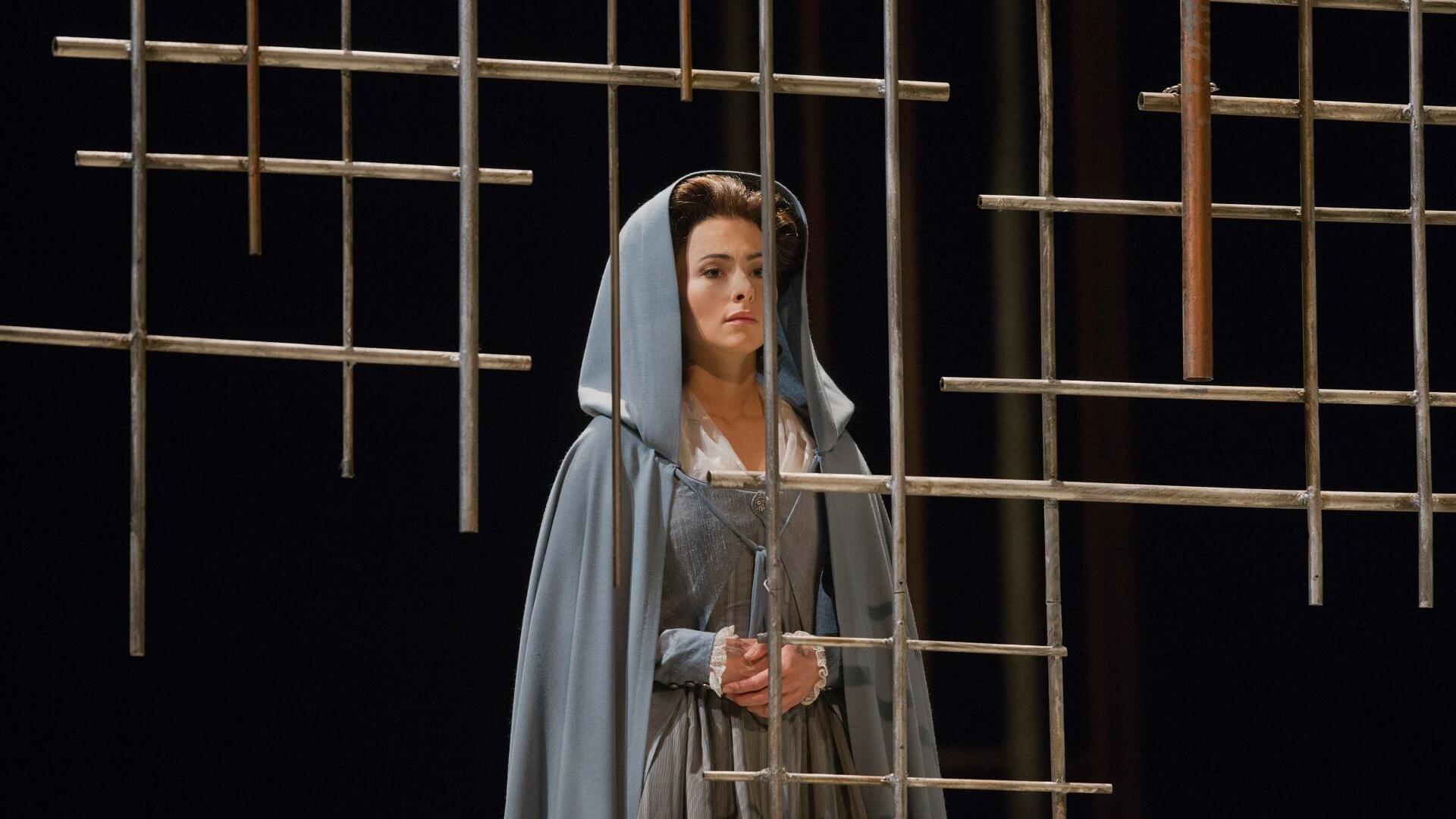
The Met: Live in HD – Poulenc’s Dialogues des Carmélites
12:00 p.m. ET / Approx. runtime: 3:29 [1 Intermission]
Yannick Nézet-Séguin; Isabel Leonard (Blanche de la Force), Adrianne Pieczonka (Mme Lidoine), Erin Morley (Constance), Karen Cargill (Mère Marie), Karita Mattila (First Prioress), David Portillo (Chevalier de la Force), Dwayne Croft (Marquis de la Force)
ACT I
Paris, April 1789. The first signs of the French Revolution are beginning to shake the country. The Marquis de la Force and his son, the Chevalier, are worried about Blanche, the Chevalier’s fearful, nervous sister, whose carriage has been held up by a mob on her way home. When Blanche arrives she makes light of the incident, but her anxiety is revealed when a servant’s shadow frightens her as she leaves the room. Shaken, she returns to tell her father that she has made up her mind to become a nun.
Weeks later at the Carmelite convent in Compiègne, Blanche is interviewed by Madame de Croissy, the aged and ailing prioress, who makes it clear to Blanche that the convent is a house of prayer, not a refuge. The prioress is touched by Blanche’s resolve to embrace her new life.
Blanche and young Sister Constance discuss their fear of death, which Constance claims to have overcome. Blanche admits her envy of her companion’s straightforward and easygoing nature. Constance shocks Blanche by telling her that she knows they will both die young and on the same day.
Madame de Croissy is lying on her deathbed, struggling to appear calm. She blesses Blanche and consigns her, as the youngest member of the order, to the care of the loyal Mère Marie. The prioress confesses her fear in the hour of death, then she falls back lifeless.
ACT II
That night in the chapel, Constance and Blanche keep vigil by the prioress’s bier. Blanche is overcome by fear and about to run off, when Mère Marie appears. Realizing that Blanche is genuinely afraid she tries to calm her.
Constance hopes that Mère Marie will be the new prioress. She tells Blanche that she wonders why a god-fearing person like Madame de Croissy had to die such an agonizing death. Perhaps, she says, people don’t die for themselves but for others. Someone else will be surprised one day to find death easy.
Madame Lidoine has been appointed the new prioress. In the chapter room, she addresses the convent, counseling patience and humility. A visitor is announced—it is the Chevalier, Blanche’s brother, who is about to flee the country. He urges Blanche to leave the convent and return to their father. Blanche replies that her duty is to her sisters.
In the sacristy, the chaplain, forbidden to perform his duties, celebrates his last mass. The nuns discuss the fear that has grabbed the country and Mère Marie wonders if self-sacrifice will be their destiny. Madame Lidoine reminds them that martyrs are not chosen by their own will, only by God’s. Knocking is heard and the sounds of an angry crowd. Two Commissioners enter and tell the sisters that they have been expelled from the convent. One of them, speaking quietly to Mère Marie, adds he will do what he can to help them get away safely. One of the sisters gives Blanche a figurine of the Christ Child. When revolutionary cries are heard from outside, Blanche nervously drops the figure, breaking it. She is horrified by this omen.
ACT III
In the devastated chapel, Mère Marie suggests in Madame Lidoine’s absence that they all take a vow of martyrdom by unanimous decision. Noting Blanche’s reaction, the others suspect she will vote against it. When the secret ballot reveals one dissenter, Constance claims it was she and asks to reverse her vote so the vow can proceed. Blanche, afraid to live or to die, runs away. The sisters are led from the convent.
Blanche is forced to work as a servant in the ransacked mansion of her father, who has been sent to the guillotine. Mère Marie finds her there to take her back to the sisters. On the streets, Blanche learns that the nuns have been arrested.
At the Conciergerie prison, Madame Lidoine joins the sisters in their vow of martyrdom. Constance says that she has dreamed of Blanche’s return. A jailer enters and reads the death sentence. Madame Lidoine blesses the sisters. When Mère Marie learns from the chaplain that the nuns will die, she wants to join them, but the chaplain reminds her that it is for God to decide whether or not she will be a martyr.
A crowd has gathered on the Place de la Révolution. The Carmelites walk towards the guillotine, led by Madame Lidoine and singing the Salve Regina. With each stroke of the blade, their voices are cut off one by one, finally leaving only Constance. On her way to the scaffold, she sees Blanche step up from the crowd, take up the chant, and follow her to her death.
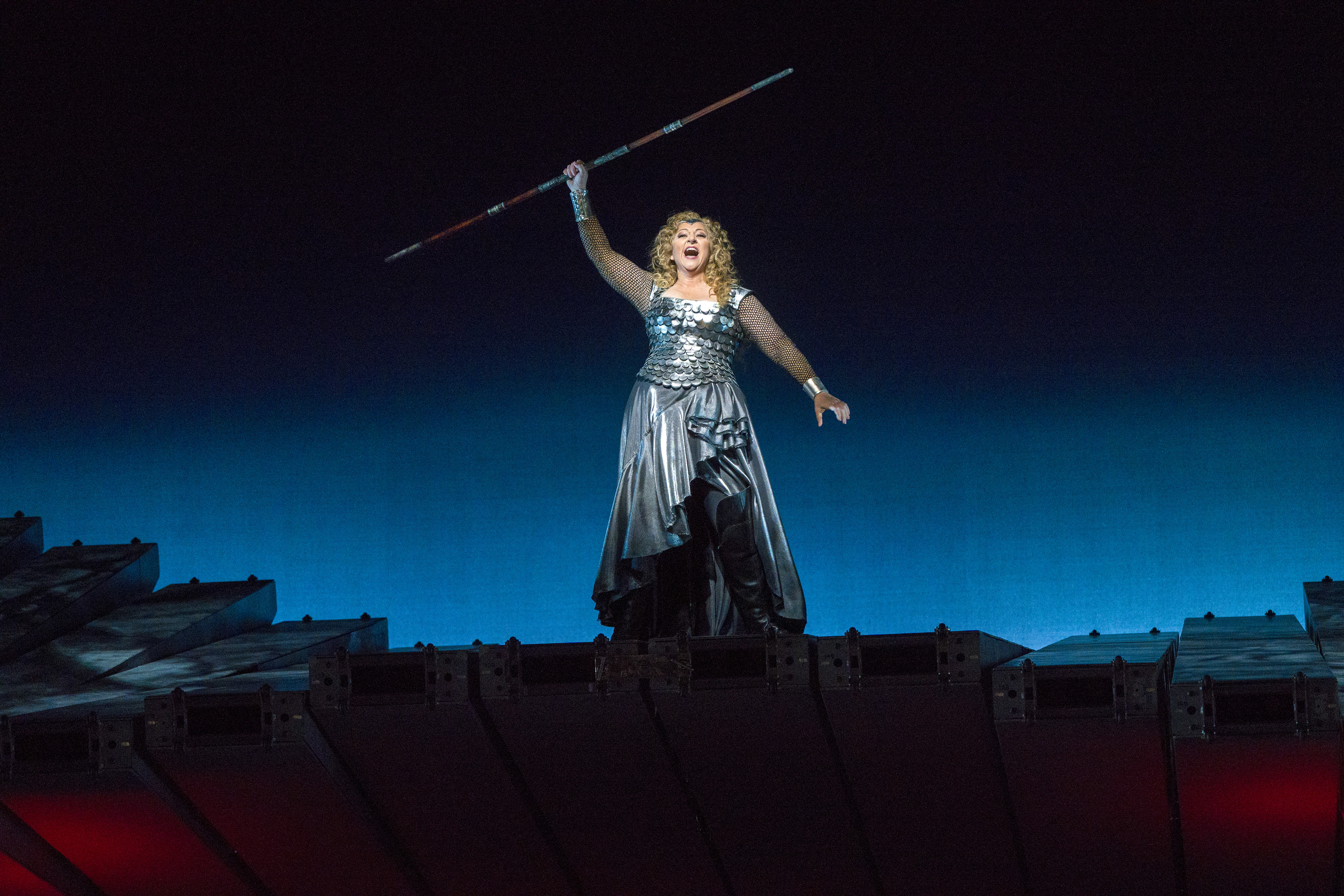
The Met: Live in HD – Wagner’s Die Walküre
12:00 p.m. ET / Approx. runtime: 5:20 [2 Intermissions]
Philippe Jordan; Christine Goerke (Brünnhilde), Eva-Maria Westbroek (Sieglinde), Jamie Barton (Fricka), Stuart Skelton (Siegmund), Greer Grimsley (Wotan), Günther Groissböck (Hunding)
ACT I
Pursued by enemies during a storm, Siegmund stumbles exhausted into an unfamiliar house. Sieglinde finds him lying by the hearth, and the two feel an immediate attraction. They are interrupted by Sieglinde’s husband, Hunding, who asks the stranger who he is. Calling himself “Woeful,” Siegmund tells of a disaster-filled life, only to learn that Hunding is a kinsman of his enemies. Hunding tells his guest they will fight to the death in the morning.
Alone, Siegmund calls on his father, Wälse, for the sword he once promised him. Sieglinde reappears, having given Hunding a sleeping potion. She tells of her wedding, at which a one-eyed stranger thrust into a tree a sword that has since resisted every effort to pull it out (“Der Männer Sippe”). Sieglinde confesses her unhappiness to Siegmund. He embraces her and promises to free her from her forced marriage to Hunding. As moonlight floods the room, Siegmund compares their feelings to the marriage of love and spring (“Winterstürme wichen dem Wonnemond”). Sieglinde addresses him as “Spring” but asks if his father was really “Wolf,” as he said earlier. When Siegmund gives his father’s name as Wälse instead, Sieglinde recognizes him as her twin brother. Siegmund pulls the sword from the tree and claims Sieglinde as his bride, rejoicing in the union of the Wälsungs.
ACT II
High in the mountains, Wotan, leader of the gods, tells his warrior daughter, the Valkyrie Brünnhilde, that she must defend his mortal son Siegmund in his upcoming battle with Hunding. She leaves joyfully to do what he has asked, as Fricka, Wotan’s wife and the goddess of marriage, appears. Fricka insists that Wotan must defend Hunding’s marriage rights against Siegmund. She ignores his argument that Siegmund could save the gods by winning back the Nibelung Alberich’s all-powerful ring from the dragon Fafner. When Wotan realizes he is caught in his own trap—he will lose his power if he does not enforce the law—he submits to his wife’s demands. After Fricka has left, the frustrated god tells the returning Brünnhilde about the theft of the Rhinegold and Alberich’s curse on it (“Als junger Liebe Lust mir verblich”). Brünnhilde is shocked to hear her father, his plans in ruins, order her to fight for Hunding.
Siegmund comforts his fearful bride and watches over her when she falls asleep. Brünnhilde appears to him as if in a vision, telling him he will soon die and go to Valhalla (“Siegmund! Sieh auf mich!”). He replies that he will not leave Sieglinde and threatens to kill himself and his bride if his sword has no power against Hunding. Moved by his steadfastness, Brünnhilde decides to defy Wotan and help Siegmund. Siegmund bids farewell to Sieglinde when he hears the approaching Hunding’s challenge. The two men fight and Siegmund is about to be victorious, when Wotan appears and shatters his sword, leaving him to be killed by Hunding. Brünnhilde escapes with Sieglinde and the broken sword. Wotan contemptuously kills Hunding with a wave of his hand and leaves to punish Brünnhilde for her disobedience.
ACT III
Brünnhilde’s eight warrior sisters—who have gathered on their mountaintop bearing slain heroes to Valhalla. They are surprised to see Brünnhilde arrive with a woman, Sieglinde. When they hear she is fleeing Wotan’s wrath, they are afraid to hide her. Sieglinde is numb with despair until Brünnhilde tells her she bears Siegmund’s child. Now eager to be saved, she takes the pieces of the sword from Brünnhilde, thanks her, and rushes off into the forest to hide from Wotan. When the god appears, he sentences Brünnhilde to become a mortal woman, silencing her sisters’ objections by threatening to do the same to them. Left alone with her father, Brünnhilde pleads that in disobeying his orders she was really doing what he wished. Wotan will not give in: she must lie in sleep, a prize for any man who finds her. She asks to be surrounded in sleep by a wall of fire that only the bravest hero can pierce. Both sense this hero must be the child that Sieglinde will bear. Sadly renouncing his daughter (“Leb’ wohl, du kühnes, herrliches Kind”), Wotan kisses Brünnhilde’s eyes with sleep and mortality before summoning Loge, the god of fire, to encircle the rock. As flames spring up, the departing Wotan invokes a spell defying anyone who fears his spear to brave the flames.


